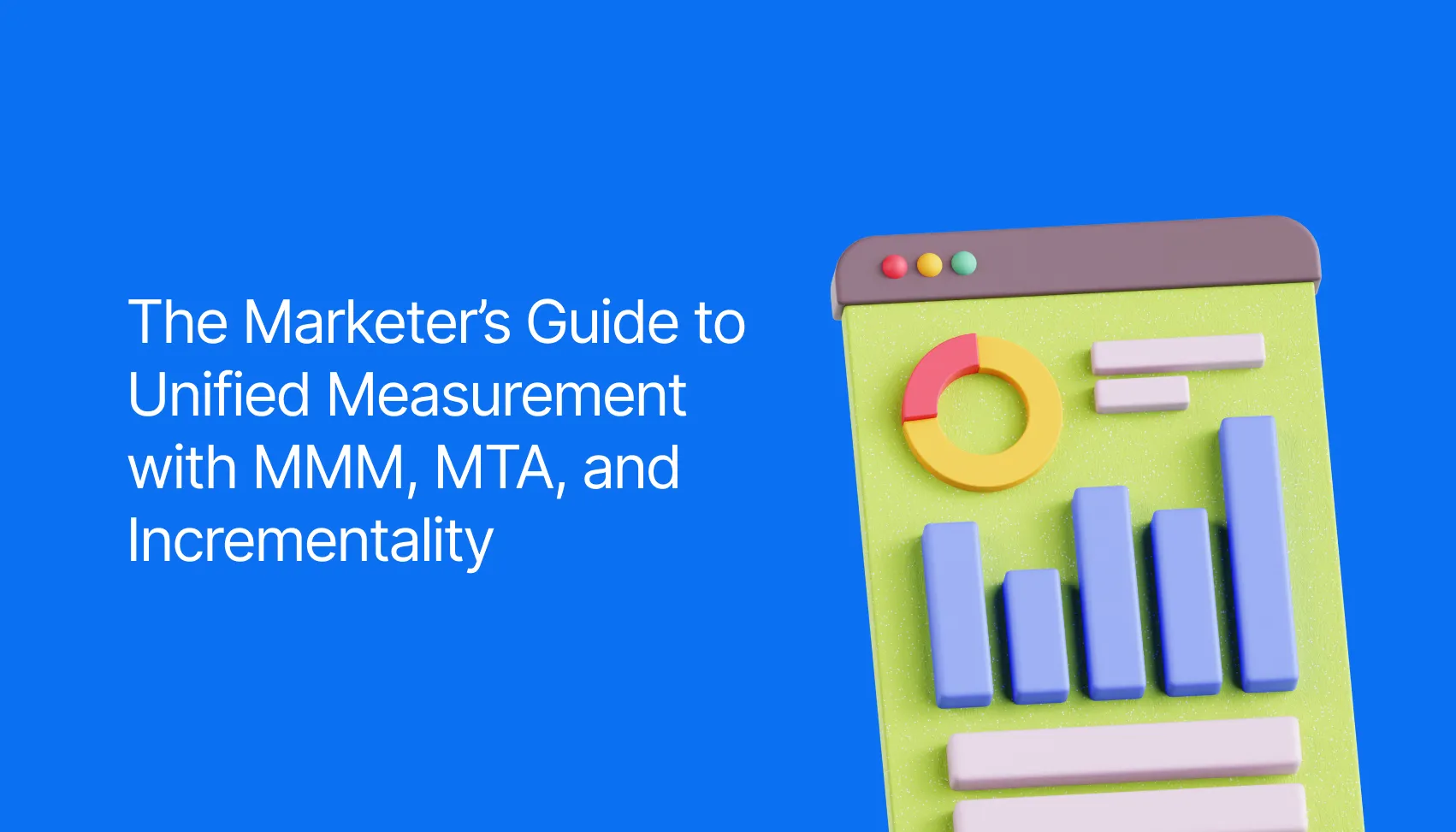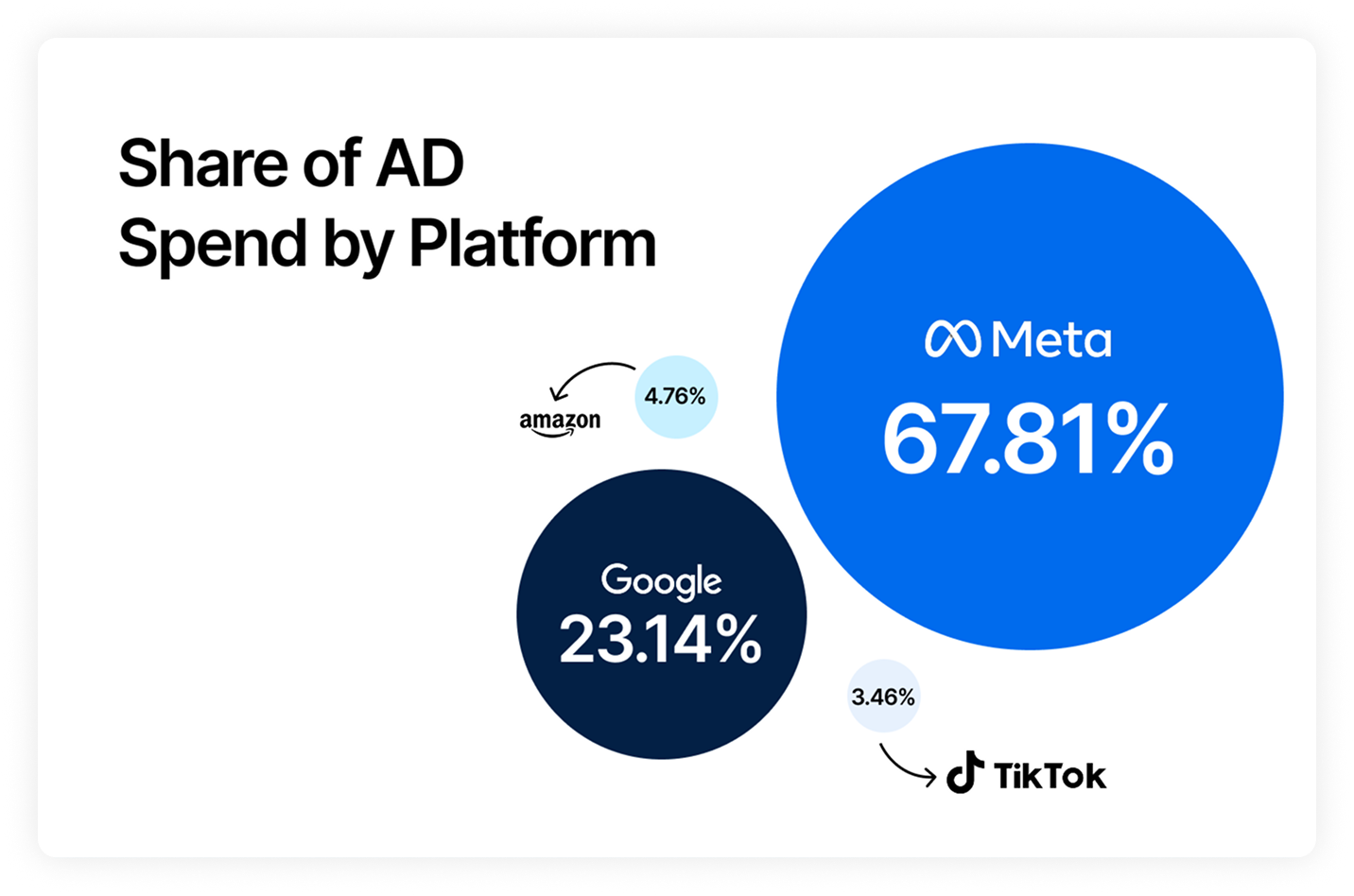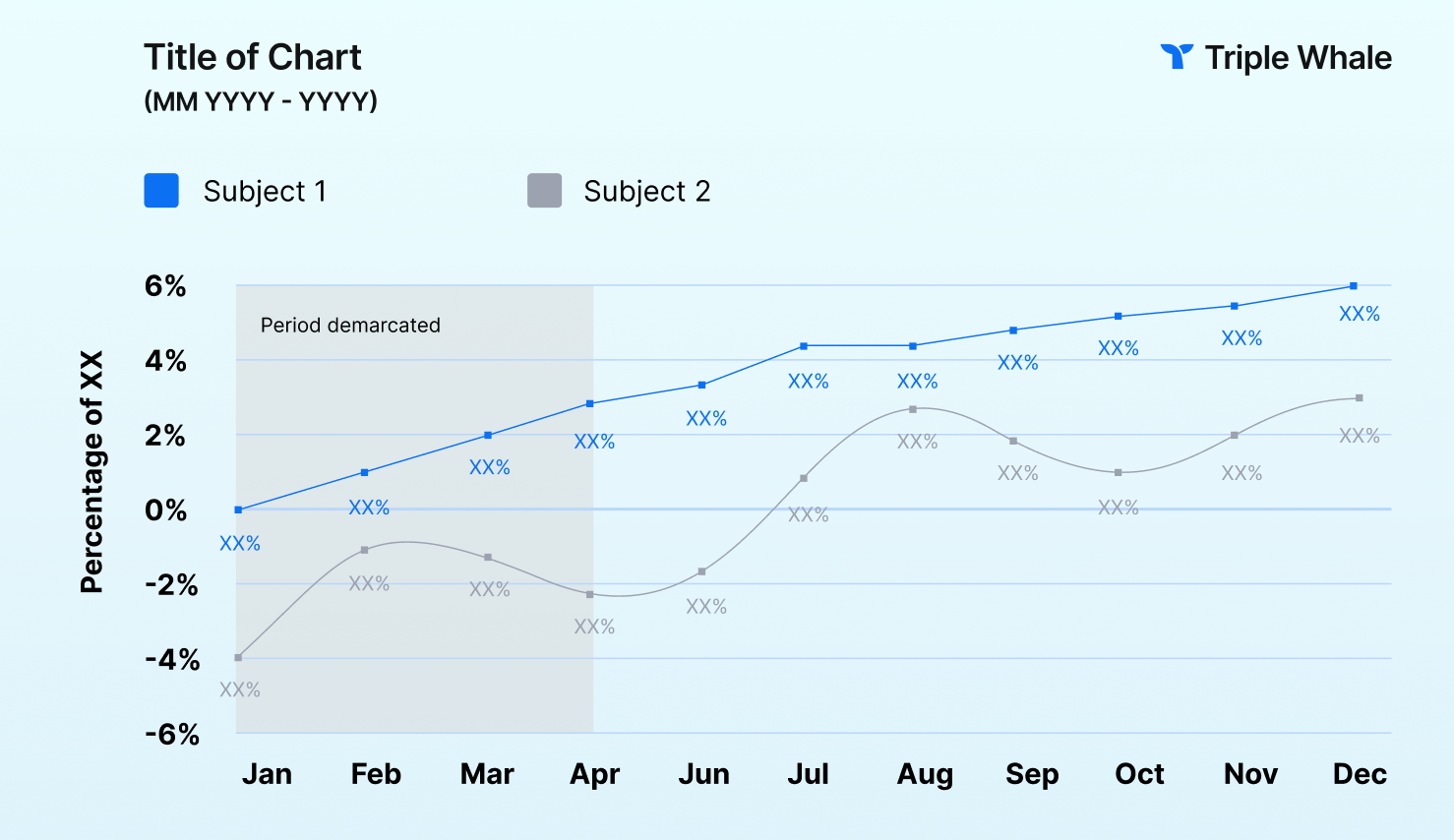
Measuring marketing performance has never been harder. And yet, it’s never been more important.
At The Whalies, we unpacked that question and introduced a unified measurement framework that brings together three powerful methodologies — Marketing Mix Modeling (MMM), Multi-Touch Attribution (MTA), and Incrementality Testing— into a single, AI-assisted decision engine.
Here’s what we covered.
Despite advancements in analytics, marketing measurement is still broken, and it’s not for lack of tools.
Many teams use a mix of dashboards, attribution models, and platform metrics. But these tools often live in silos, pulling in different directions and using conflicting assumptions. The result? A lot of noise and very little clarity.
Three issues we see most often:
To solve the fragmentation problem, it’s not enough to just offer more measurement tools. What marketers need is a unified system where MMM, MTA, and incrementality testing work together — with AI connecting the dots.
Triple Whale’s unified measurement framework doesn’t just present these testing methodologies side by side. It synthesizes them using AI agents that analyze data across all three layers and generate weekly action plans, highlight conflicts, and recommend tests — all in one place.
Think of it like you’re planning a road trip.
You need all three tools — not in isolation, but working together — to build a confident strategy.
Triple Whale’s Marketing Mix Modeling runs weekly, analyzing up to two years of historical revenue and marketing spend. It provides:
It’s not a black box — you can tweak goals, set budget ceilings, and even simulate “what if” scenarios.
Use case: You want to grow new customer revenue without over-indexing on one channel.
Triple Whale’s Multi-Touch Attribution engine shows you exactly how each channel, campaign, and ad contributes to conversions, based on click-level data.
Use case: You see a campaign performing well in-platform but not in your back-end data. MTA shows the full customer path, and whether that campaign truly contributed.
This is where the magic happens.
Triple Whale now supports Meta Conversion Lift tests inside the platform, and Geo Lift Testing across all platforms is in beta. In just a few clicks, you can:
Use case: Your MMM says scale back Meta. Your MTA says keep spending. A lift test inside an incrementality testing tool helps you validate which signal is right.
With all three tools unified, Triple Whale can now power Moby Agents — customizable AI assistants that analyze your full stack of measurement data and output instant action plans.
Each agent:
Instead of choosing between conflicting reports, let the agent synthesize everything into one clear recommendation.
Whether you're prepping for a big campaign push or scaling through a volatile market, you can't afford to guess. Triple Whale’s unified measurement framework is built to help you:
And unlike other tools, Triple Whale automates the analysis of all three measurement models with AI.
Want to dive deeper?
Triple Whale brings these tools together in one place, unified by AI, so your team can stop fighting data silos and manual analysis — and start executing with confidence and speed.
Ready to test what’s truly working in your marketing? Schedule a demo.

Measuring marketing performance has never been harder. And yet, it’s never been more important.
At The Whalies, we unpacked that question and introduced a unified measurement framework that brings together three powerful methodologies — Marketing Mix Modeling (MMM), Multi-Touch Attribution (MTA), and Incrementality Testing— into a single, AI-assisted decision engine.
Here’s what we covered.
Despite advancements in analytics, marketing measurement is still broken, and it’s not for lack of tools.
Many teams use a mix of dashboards, attribution models, and platform metrics. But these tools often live in silos, pulling in different directions and using conflicting assumptions. The result? A lot of noise and very little clarity.
Three issues we see most often:
To solve the fragmentation problem, it’s not enough to just offer more measurement tools. What marketers need is a unified system where MMM, MTA, and incrementality testing work together — with AI connecting the dots.
Triple Whale’s unified measurement framework doesn’t just present these testing methodologies side by side. It synthesizes them using AI agents that analyze data across all three layers and generate weekly action plans, highlight conflicts, and recommend tests — all in one place.
Think of it like you’re planning a road trip.
You need all three tools — not in isolation, but working together — to build a confident strategy.
Triple Whale’s Marketing Mix Modeling runs weekly, analyzing up to two years of historical revenue and marketing spend. It provides:
It’s not a black box — you can tweak goals, set budget ceilings, and even simulate “what if” scenarios.
Use case: You want to grow new customer revenue without over-indexing on one channel.
Triple Whale’s Multi-Touch Attribution engine shows you exactly how each channel, campaign, and ad contributes to conversions, based on click-level data.
Use case: You see a campaign performing well in-platform but not in your back-end data. MTA shows the full customer path, and whether that campaign truly contributed.
This is where the magic happens.
Triple Whale now supports Meta Conversion Lift tests inside the platform, and Geo Lift Testing across all platforms is in beta. In just a few clicks, you can:
Use case: Your MMM says scale back Meta. Your MTA says keep spending. A lift test inside an incrementality testing tool helps you validate which signal is right.
With all three tools unified, Triple Whale can now power Moby Agents — customizable AI assistants that analyze your full stack of measurement data and output instant action plans.
Each agent:
Instead of choosing between conflicting reports, let the agent synthesize everything into one clear recommendation.
Whether you're prepping for a big campaign push or scaling through a volatile market, you can't afford to guess. Triple Whale’s unified measurement framework is built to help you:
And unlike other tools, Triple Whale automates the analysis of all three measurement models with AI.
Want to dive deeper?
Triple Whale brings these tools together in one place, unified by AI, so your team can stop fighting data silos and manual analysis — and start executing with confidence and speed.
Ready to test what’s truly working in your marketing? Schedule a demo.

Body Copy: The following benchmarks compare advertising metrics from April 1-17 to the previous period. Considering President Trump first unveiled his tariffs on April 2, the timing corresponds with potential changes in advertising behavior among ecommerce brands (though it isn’t necessarily correlated).
